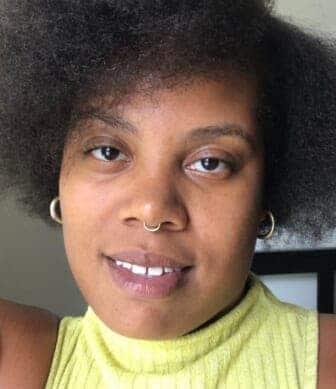Exhaustion and reduced stamina are a part of being human, but sometimes, being tired is about more than not getting enough sleep.
As the final days of summer approach and many begin to turn their attention back to focus and productivity, it may be a good time to get certain routines back under control. For those experiencing more fatigue than usual, establishing a healthy routine with sleep should be on top of the goal list. Maintaining a healthy sleep schedule and finding time for naps is not only recommended but essential to maintaining physical, mental and emotional function. However, there could be more to your fatigue than just “general” sleepiness.
If you’re wondering why you may be more tired than usual, the answer might not be that you’re just not getting enough sleep. Here are five top causes of fatigue — and advice on what you can do about it.
Your age
It’s true. As we age, we may experience more tiredness than when we were younger and more spry. This age-induced sleepiness may even start in the early 30s. According to the Medical University of South Carolina, losing stamina as we get older is to be expected and most likely not cause for concern. However, it is worthy of concern when the tiredness is coupled with other symptoms, including chest tightness, feelings of imminent loss of consciousness, and extreme emotional distress.
If you’re simply advancing in age, embrace it. Revel in an early bedtime. Turn your nose up at plans that start after 9 p.m., guilt-free. Get your rest. If the fatigue is chronic or impeding your life, check in with your physician. Shifting other aspects of your regime, including your diet, could greatly impact your stamina.
Being Black
Existing is exhausting. Existing while Black, even more so. In fact, the American Heart Association released a report highlighting the dangerous impacts of “Black fatigue,” which refers to the stress, anxiety, and mental exhaustion of having to navigate systemic racism 24/7.
The solution to this would involve just about everyone committing to abolishing racism. But on a personal level, it can be lessened by establishing boundaries with non-Black friends, family and colleagues. Practicing self-care, as in the restorative act of reconnecting with your humanity after spending a day among those who refuse to acknowledge it — whether at school, in the workplace, or out in the world — is a human right. It may even benefit some to seek counseling.
Bad habits
You stay up till the wee hours scrolling or burning through your streaming queue, then down cup after cup of caffeine during the day, only to catch a second wind for happy hour. Rinse and repeat. Sometimes, we are our own worst enemy.
Think about how you spend the day and how you use your time. Take stock of the habits you’ve formed and whether any of them, like too much screen time before bed, are preventing you from honoring your bedtime. Set some parameters for yourself. Maybe it’s not a good idea to make an appearance at “Wine Wednesday” and “Thirsty Thursday” in the same week, especially considering that excessive alcohol consumption is linked to poor sleep quality. Establish scrolling-time windows, hold the binge-watching sessions until your day off, and set a time for when you’re done checking in with the world for the day. Those posts will be there in the morning; put your phone down.
Deficiencies (and poor diet)
When people used to say, “Take a chill pill,” they didn’t mean it literally, but it turns out magnesium fits the description. It’s a mineral that is a vital part of many bodily functions, including the rhythm of our heartbeats, our moods, and, yes, even sleep. You can also become deficient in magnesium, as well as many other vital minerals and nutrients. For instance, Vitamin D similarly impacts multiple functions in the body, including the immune system, skin and sleep. Black people are more likely to be deficient in Vitamin D than any other race.
To know for sure, check in with your physician and consider getting some bloodwork done. There could be the perfect cocktail of vitamins out there, just waiting to send you off into a deep slumber. Vitamins and supplements are a popular way to boost anything you’re lacking, and their job can be made easier with a healthful diet.
Potentially serious medical conditions
Sometimes, it’s not just a lack of certain minerals or a bad nightly routine. If you have concerns about your energy levels and sleeping patterns, checking in with your doctor never hurts. While triggering and intense for some, bloodwork can actually relieve a lot of anxiety because you will know for sure and potentially early enough to get back on a healthy track.
From mental health to autoimmune disorders to thyroid troubles, there could be a variety of underlying conditions that could lead to reduced energy. But it is always better to rule anything out at the first sign, so don’t sleep on those symptoms.

Kay Wicker is a lifestyle writer for theGrio covering health, wellness, travel, beauty, fashion, and the myriad ways Black people live and enjoy their lives. She has previously created content for magazines, newspapers, and digital brands.
TheGrio is FREE on your TV via Apple TV, Amazon Fire, Roku, and Android TV. TheGrio’s Black Podcast Network is free too. Download theGrio mobile apps today! Listen to ‘Writing Black’ with Maiysha Kai.
The post Tired all the time? From ‘Black fatigue’ to low Vitamin D, here are 5 possible reasons why appeared first on TheGrio.

New Comments